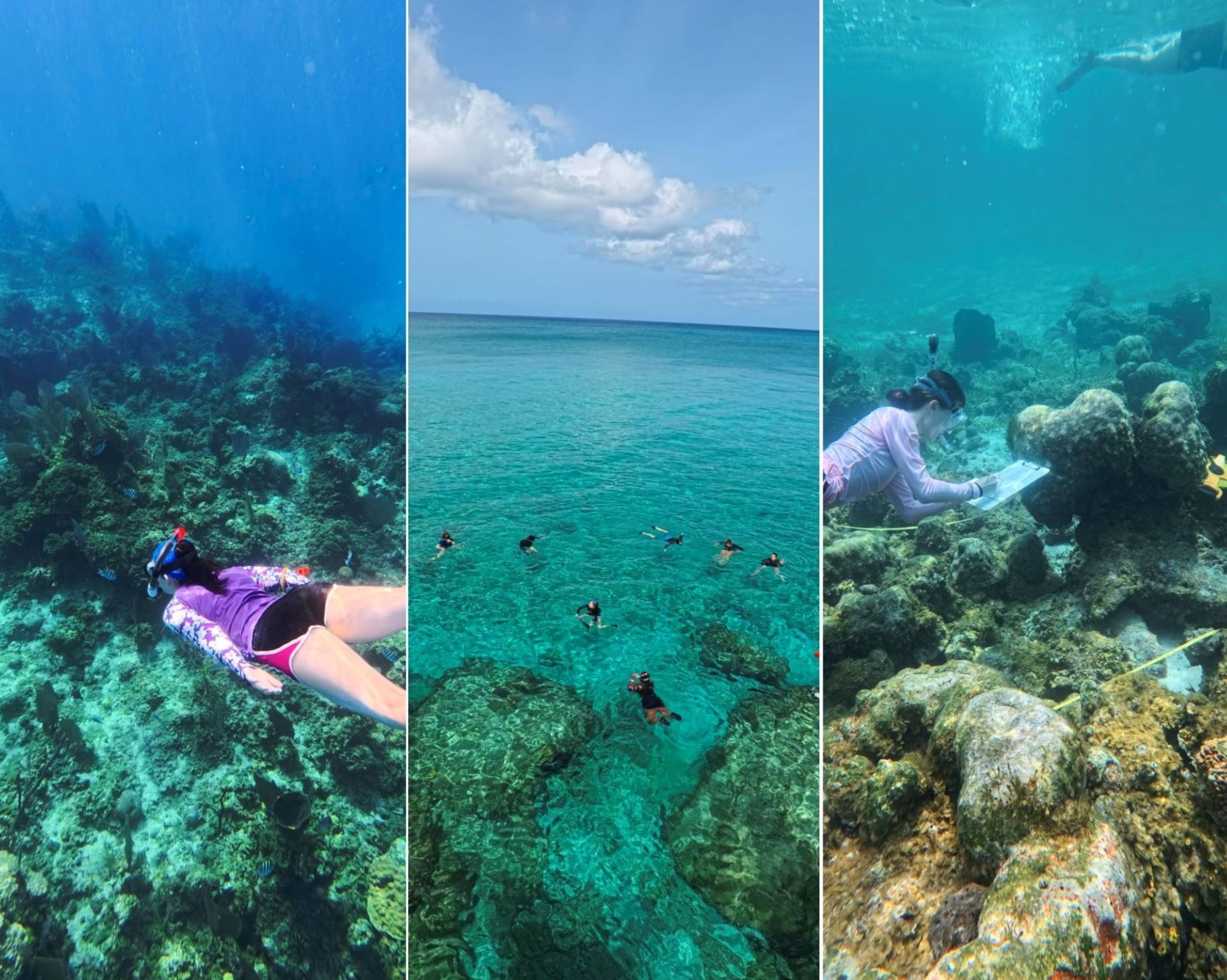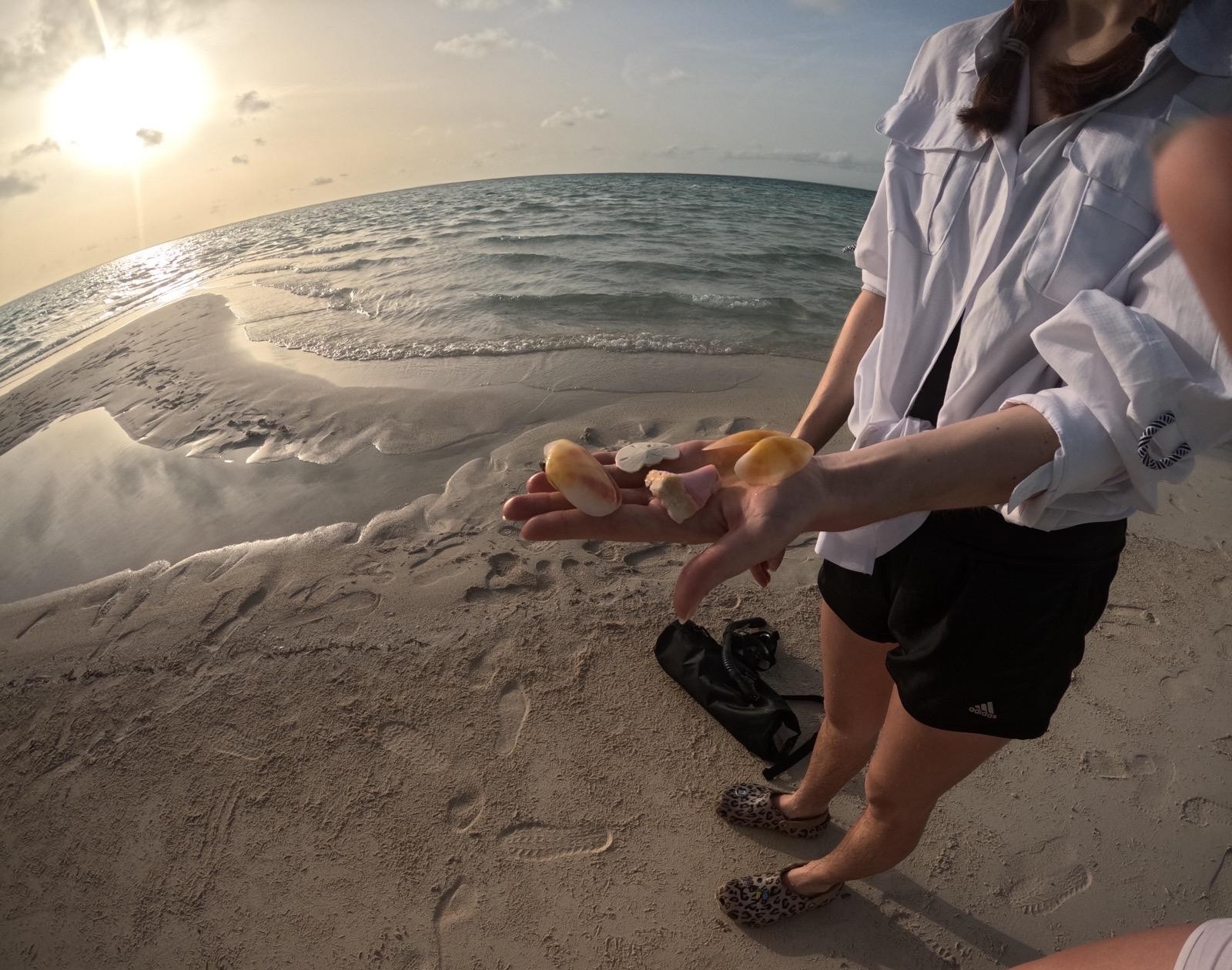After weeks of preparation, 12 Concordia biology undergraduate students traded classrooms for coral reefs. As part of BIOL 498: Coral Reef Ecology and Conservation, they traveled to the Cape Eleuthera Institute in the Bahamas to spend a week snorkeling, conducting field research, and learning from local scientists about conservation efforts.
The course is led by Nicola Smith, a marine biologist who grew up in the Bahamas and has been returning for research since her graduate studies. For her, the trip is about more than just academics. “The students got a real feel for what it’s like to do science in the field,” she says.
We spoke with students Jada Vacchiano, Pasha Jones and Kassidy Doherty about their week in the field and how it’s shaping their academic and professional paths.
From the classroom to the reef
For many, the course was a chance to bridge what they’d studied in lectures with lived experience.
“My favourite part was being out on the water every day,” says Jada. “I loved diving alongside so many different species and collecting data that directly contributed to our research. It was such a rewarding experience to combine my passion for the ocean with hands-on fieldwork.”
For Pasha, the trip brought marine biology to life. “It is one thing to be taught in a classroom,” they explain, “but to learn about an ecosystem as fragile as coral reefs while snorkeling on an actual reef was the opportunity I had been looking for.”


 “The students got a real feel for what it’s like to do science in the field,” says Nicola Smith, Assistant Professor in the Department of Biology
“The students got a real feel for what it’s like to do science in the field,” says Nicola Smith, Assistant Professor in the Department of Biology
 "[This experience] taught me to put myself out there by working with new people, asking questions, and taking initiative,” says Jada Vacchiano, one of the twelve students who took the class.
"[This experience] taught me to put myself out there by working with new people, asking questions, and taking initiative,” says Jada Vacchiano, one of the twelve students who took the class.